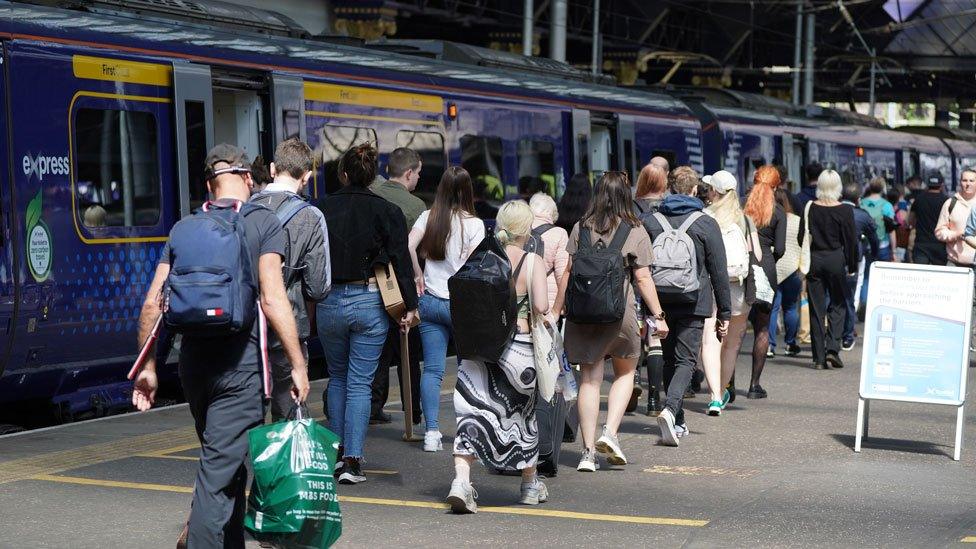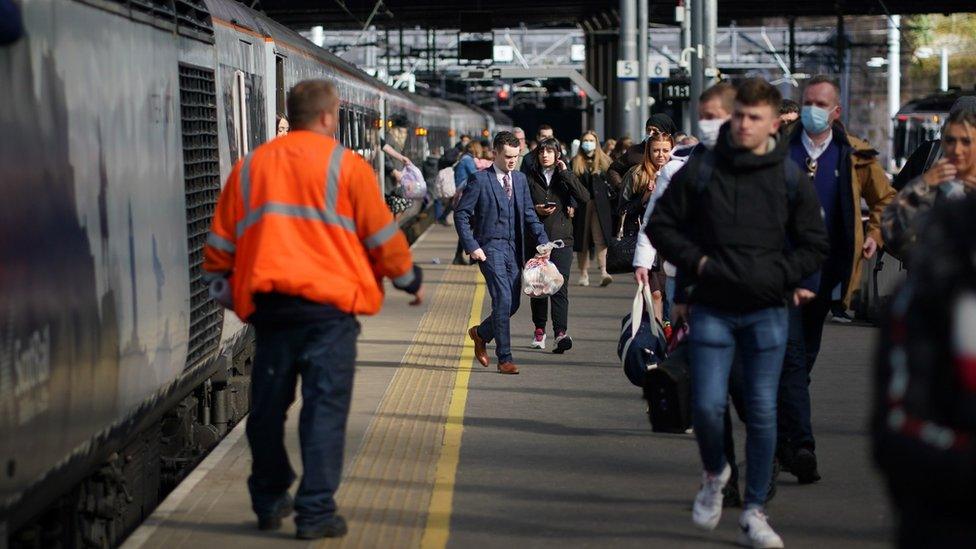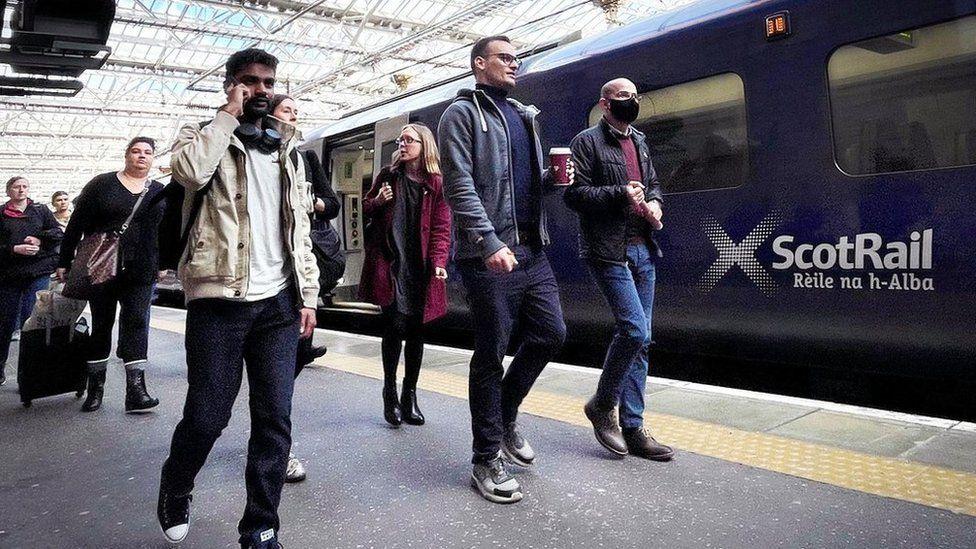Peak ScotRail fares to be scrapped in pilot scheme
- Published
- comments

Commuters travelling between Glasgow and Edinburgh will see the price of their tickets drop by almost half from next month.
The cost of a return fare between the cities during the morning rush hour will fall from £28.90 to £14.90 as part of a six-month trial to make ScotRail fares "cheaper and simpler".
It will see "peak-time" fares removed from routes across Scotland.
But travellers may no longer be able to buy some of the cheapest tickets.
The pilot scheme, which is funded by the Scottish government, will run from Monday 2 October until the end of March next year.
Announcing the move, ScotRail - which is owned by the Scottish government - gave some examples showing how the prices will change.
BBC Scotland has compared that information with the cost of the cheapest off-peak return ticket available on that route today.

It shows that on the Inverness-Elgin, and Glasgow-Stirling routes, passengers can currently buy cheaper "super off-peak day returns".
However they will be withdrawn during the trial period, meaning some travellers will have to pay more for their journeys.
On some routes there are no peak-time fares and ScotRail said customers making those journeys will not see any changes.
Kids for a Quid tickets will be valid all day, every day, and season ticket holders will be able to apply for a refund.


What will be the real cost of suspending peak fares?
£15m has been provided for the six month pilot scheme.
But when the Scottish government set out this plan, some in the industry worried the true cost could be much higher - perhaps even double.
Scotrail now thinks this new scheme will come in on budget. That's because its scope will be less expansive than some might hope.
Yes, passengers will be able to travel all day on off-peak fares.
But on routes where no off-peak fares exist, because the same price applies at all times of day, those prices won't come down further.
It's small print which saves the Scottish government millions of pounds.
The bottom line is this: many passengers will pay less to take the train.
But Scotrail's costs could rise too, if more shoppers choose to travel early, and Scotrail has to put on longer trains to cope.
It's a gamble.
Scotrail wants more traffic.
These days, at rush hour, trains are much quieter.
They carry just 70% of their pre-pandemic numbers.
Overall, rail traffic is down. But off-peak travel's bounced back, especially at weekends.
So cutting peak fares aims to attract more people back to the railways.
It's a helping hand, after all, amid a cost of living squeeze.
But will it persuade more people take the train, instead of their car?
And will more people who work at home return to the office?
We don't yet know if this £15m pound gamble will pay off.

Net zero target
Ministers want to encourage people to travel by rail instead of car, as part of moves to achieve their environmental targets.
There has been a significant drop in the number of people travelling by train at peak times since the pandemic.
ScotRail said peak time rail travel is only at 70% of pre-Covid levels.
Transport Minister Fiona Hyslop said: "This peak fare removal pilot is aimed at achieving [government net zero targets] by making ticketing simpler with off-peak fares valid all day.
"This is an exciting and unique opportunity to encourage more people to choose a safe, reliable, and greener form of public transport."
Alex Hynes, Scotland's Railway managing director, added: "Everyone at ScotRail is working hard to make sure that this six-month trial will be a success, and we will be monitoring our services and stations daily to see where we have any significant increases in customer journeys.
"We know that cost and simplicity is a critical factor for people when they choose how to travel, and we are looking forward to delivering this fantastic fare reduction for our customers."
Related topics
- Published16 December 2022

- Published3 July 2023
